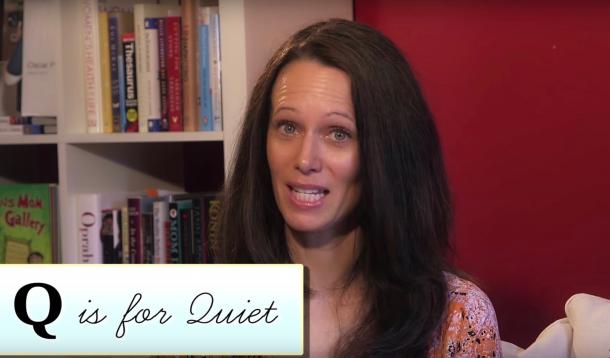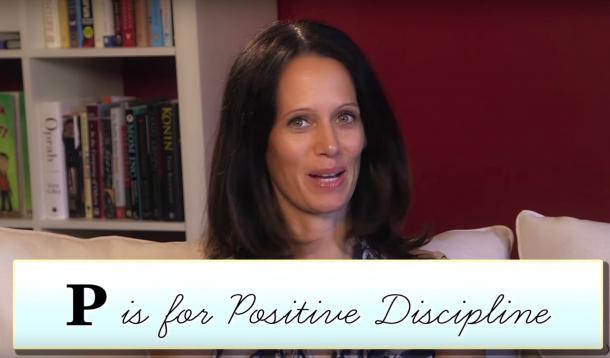
Welcome back to the A to Z of Taming Tantrums video series. This episode is about the letter Q and Q is for Quiet. I don’t mean that need we need to try to get our children to be quieter, but rather to use the tantrum prevention strategy of giving our young ones lots of quiet time.
Some children who are introverts might have a large need to be in a quiet environment, and others might not need as much. I certainly notice when I haven’t had enough quiet time and almost feel like exploding—children go through the same thing.
Quiet time does quite a lot for us: it gives us an opportunity to recharge, reset, and regroup. It also gives us time with our thoughts, feelings, and to do what we’d like to—to be in control.
In this video, I explain more about that:
Please note that different children need different levels and amounts of quiet. I call it a quiet bucket: imagine each child has an imaginary bucket or tank inside that gets filled or emptied in regards to how much alone and quiet time they need to feel centered. Even within the same family, siblings might have very different sized quiet buckets.
Also consider that visual stimulus might be considered “noise” by some people. Clutter, lots of items around or on display, or active-looking posters or art on the walls can feel loud by some. If your child is old enough to understand, perhaps ask how he or she feels about the things in the room(s).
I invite you over to my Facebook page if you would like to comment or ask a question. Here’s hoping you get a moment of quiet today!
We're so excited to share with you the A to Z of Taming Tantrums video series!
Each week we'll share the next letter of the alphabet and Andrea will discuss how it relates to reducing tantrums - and improve our experience as parents! You can view each video here as they are added each Friday.


Parenting is a full-time, all-consuming job. Even when we leave for work in the morning or spend a few hours away from our children to run errands on the weekend, we don’t take off our “parent” hat. We are always Mom or Dad. And yet it is important that we value the person beyond the title of Mom or Dad.
Valuing the person beyond the parent is a critical part of my Connect Four Pillars. First, it helps us connect with our core beliefs, which really do affect how we think and act. Second, it teaches our children empathy because they learn that we – their parents – have wants, needs, and feelings aside those that exist in relation to them. Third, it helps us connect with our children in a personal way that extends beyond the parent-child relationship. And fourth, valuing the person beyond the parent helps us maintain a connection to our own emotions, which can sometimes get hidden under the grittier parts of the parenting role.
Here are eight ways parents can value the person beyond the parent:
All too often, we parents put the needs of our children first and let our own needs slip to the bottom of the list – or off the list entirely. Eating meals with our children, instead of picking at food while tending to their meals is one way we can show our children that our eating time is as important as theirs.
Other needs like being rested enough, being heard, and having fun time, for example, can really change our parenting experience. Talking with our children about the things that we need in order to be a healthy and happy person demonstrates that others have needs, too.
Simple things like taking a walk around the block, exercising (even for a short time), and reading a good book can help replenish depleted energy reserves. I make sure to mention to my children that I do activities like yoga and ride my bike because they are things that help me feel better. I even biked when I was pregnant!

Parents can help remind each other of the person beyond the parent by noticing each other’s successes, efforts, and struggles, and talking about those in front of their children.
We are in the process of opening an independent school right now, which has certainly been challenging! I’m letting my children know how my husband and I are supporting each other as we go through this building phase of life. It’s important to me that they watch me filling my husband’s buckets up and using “I see yous” like I do with them.
No one is perfect and, even more importantly, no one expects us to be. As parents, we sometimes set unrealistic expectations for ourselves and then get frustrated when we fall short. By acknowledging our shortcomings, we can teach our children several valuable lessons about learning from our mistakes, how to deliver a heartfelt apology, and the power of forgiveness.
Parenting – and life in general – is filled with a fair amount of ridiculousness. Sometimes all you can do is laugh! "Laughter releases the same tension as tears," Laura Markham, PhD.
While it is important that we parents maintain a bit of levity surrounding this very serious role of parenting, it is also important that our children do not hear us criticizing ourselves. Try to avoid using negative words to describe our bodies or personality and instead talk about self-improvement.
Put the focus on analyzing what needs to be changed and talk about the different options for making those changes. I’m a fan of using SMART goals, so perhaps share a goal with your children—and how that goal is going as time passes.
Not only is spending time with our friends important for our own adult relationships, but it also teaches our children to value those relationships in their own life as well.
When our children see us spending time with others who are important to us, we model healthy adult relationships for them.
The world is a noisy place. Comparisons to others can make it difficult to feel like competent parents and good people. While we all have areas for improvement, surrounding ourselves with positive people will help us learn and grow – as parents and people – in a safe and healthy way.
One of the biggest struggles I’ve had with parenting has been a sense of losing myself while being a mom. Turning this around has been important for me because I feel that I’m a better mom, plus a much happier person, when I have a strong sense of who I am as an individual. Being aware of how I present myself as a person with needs, feelings, and goals has helped me feel happier and also show my children that I am more than just their parent.
Do you have any questions or comments? Feel free to leave those below or over on my Facebook page. I look forward to hearing from you!

Hi, it’s Andrea Nair—thank you for staying tuned to the A to Z of Taming Tantrums series! We’re up to the letter P already, and P is for Positive Discipline.
One of the most common questions I receive from parents is: How do I discipline my child? I don’t want to spank, use threats, or time-outs so what can I do?
I, too, experienced first hand what it feels like to feel unequipped to handle the challenges toddlers bring (which I why I shifted my career from trauma psychotherapy to parenting education!), as I didn’t feel like I had a plan to address the typical things toddlers do: dawdle, get lost in play, hit, launch toys and forks at me, bite, melt-down, blow-up, and throw themselves onto the ground while screaming.
The first thing I did when my children were toddlers was try to get a better understanding of their brains, and that’s where I discovered much of what significantly changed my own parenting, and how I coach others. I discovered that where the instructions land in a child’s mind would really change how he or she responds: whether there is some thought or a big physical reaction.
What I mean by that is this: if our instructions trigger the child’s fight-or-flight reaction, we can expect defiance, to be ignored, miscommunication, or aggression. That natural instinct to defend or attack is very well developed in little ones, as that is what starts off keeping them safe: they yell or flail around to get their needs met. If our instructions cause our child to pause and respond with cooperation, our words were likely processed in the prefrontal cortex part of the mind. The more our words get received by that front part of the mind, the more cooperation we get!
As babies become toddlers, and toddlers become preschoolers, it is our challenging parenting task to teach our little ones how to shift from that knee-jerk physical reaction when they are upset or have an unmet need to one that is less aggressive and gentler. Our little ones are full of the sweetest empathy and love on Earth, but that gets hijacked when they are full of “angry bubbles.”
Using positive discipline will help our young children make that transition from defending, anger, and attacking to thinking rationally when they are upset or have an unmet need. Please know that it takes time to teach our children (and some adults!) to use their “thinking brain” rather than their “freaking out brain,” so expect LOTS of repetition. You will feel like a broken record: that’s normal. Know that each time you redirect with positive words, a little link in the thoughtful responding chain has been created.
Please watch this video below, where I explain this in more detail:
It’s the difference between taking away a toy, threatening them with time-outs (time-outs often make things worse because abandonment can get triggered, but mostly because little children just don’t have the brain power to understand what time-outs are for: they just get scared and mad), shouting “no” or “don’t” and trying something like this:
“Couches are for sitting. Jump over here or outside if that’s what you want to do,” (instead of “No jumping! Stop it!”)
“Clean hands are eating,” (instead of “Did you wash your hands? Make sure you use soap!”… nag, nag…)
“Are we going up for bed like elephants or crabs?!” (instead of, “I saaaaaid let’s go – it’s bedtime. If you don’t stop playing right now, I’m taking that toy away.”)
“Everyone with shoes on is going to the park,” (instead of, “I have told you ten times to put your shoes on! You’re not listening to me! Get over here.”)
This doesn’t mean that we become parenting doormats, but that we parent with love, boundaries, and positive words. I actually created an app to remember phrases that really help with all kinds of tricky toddler parenting situations. I invite you to check it out by searching for “Taming Tantrums” in your smartphone app store. Here are the links for the Canadian & American iTunes stores and also the Android app store.
I also wrote more about what positive discipline means in this post, and a full-length eBook called Taming Tantrums: A Connect Four Parenting Approach to Raising Cooperative Toddlers. Hopefully between the app, my articles, and the book, you’ll get the information you need. Oh, and please do pop over to my Facebook page if you have any questions and to read more about positive parenting.
We're so excited to share with you the A to Z of Taming Tantrums video series!
Each week we'll share the next letter of the alphabet and Andrea will discuss how it relates to reducing tantrums - and improve our experience as parents! You can view each video here as they are added each Friday.
